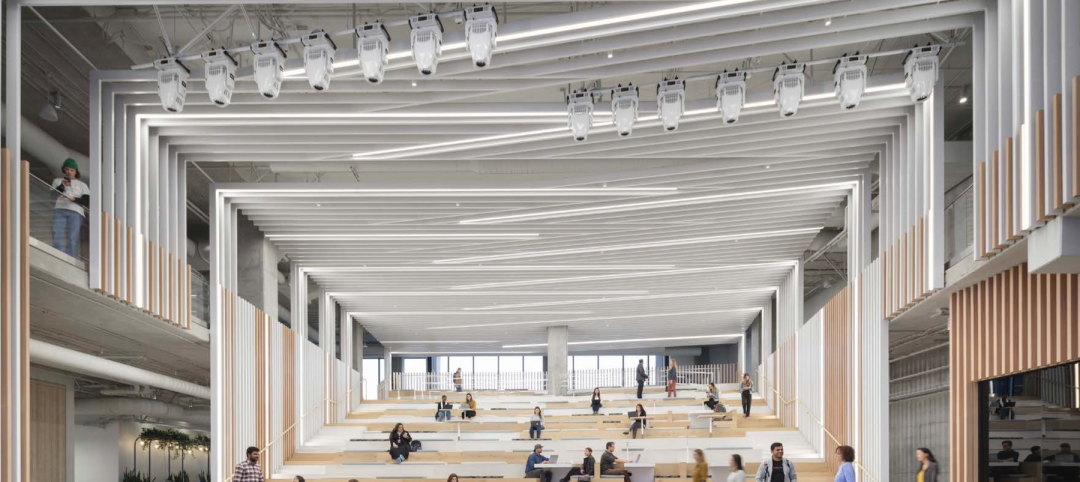Construction employment increased by 84,000 jobs in October, with jobs added in both nonresidential and residential categories, according to an analysis by the Associated General Contractors of America of government data released today. Association officials cautioned, however, that the pandemic is causing a growing number of construction projects to be canceled or delayed, according to a survey the association released in late October.
“The employment data for October is good news, but our latest survey found that only a minority of contractors expect to add to their workforce in the next 12 months,” said Ken Simonson, the association’s chief economist. “As project cancellations mount, so too will job losses on the nonresidential side unless the federal government provides funding for infrastructure and relief for contractors.”
Construction employment climbed to 7,345,000 in October, an increase of 1.2% compared to September. However, employment in the sector is down by 294,000 or 3.9% since the most recent peak in February, just before the pandemic triggered widespread project cancellations. Despite the employment pickup in October, nonresidential construction employment—comprising nonresidential building, specialty trades, and heavy and civil engineering construction—remains 262,000 jobs or 5.6% below its recent peak in February, Simonson noted.
The construction economist added that residential construction, covering residential building and specialty trade contractors, has had a stronger recovery, with employment down by just 32,000 jobs or 1.1% since February. The industry’s unemployment rate in October was 6.8%, with 674,000 former construction workers idled. These figures were the lowest since the pandemic struck but considerably higher than the October 2019 figures of 4.0% and 398,000 workers, respectively, the economist added.
In the association’s October survey, which covered more than 1,000 contractors that perform all types of nonresidential and multifamily construction, three out of four respondents reported that a scheduled project had been postponed or canceled. Only 37% of respondents expect their headcount to increase over the next 12 months. That was a sharp drop from the 75% who predicted an increase in the association’s annual Hiring and Business Outlook Survey released last December.
Association officials said they were encouraged by reports that Congress plans to consider new coronavirus relief measures before the end of the year. They noted that new measures, including investments in infrastructure, new Paycheck Protection Program flexibility and tax relief, and liability reforms will help offset the impacts of the growing number of project cancellations and delays.
“Congressional leaders understand that employers cannot afford to wait until next year for relief from the broad economic impacts of the coronavirus pandemic,” said Stephen E. Sandherr, the association’s chief executive officer. “We stand ready to work with Congress to make sure any new relief measures include new infrastructure investments, tax relief and liability reform so honest firms don’t fall victim to predatory lawyers seeking to profit from the coronavirus.”
Related Stories
Industry Research | Jan 31, 2024
ASID identifies 11 design trends coming in 2024
The Trends Outlook Report by the American Society of Interior Designers (ASID) is the first of a three-part outlook series on interior design. This design trends report demonstrates the importance of connection and authenticity.
Apartments | Jan 26, 2024
New apartment supply: Top 5 metros delivering in 2024
Nationally, the total new apartment supply amounts to around 1.4 million units—well exceeding the apartment development historical average of 980,000 units.
Self-Storage Facilities | Jan 25, 2024
One-quarter of self-storage renters are Millennials
Interest in self-storage has increased in over 75% of the top metros according to the latest StorageCafe survey of self-storage preferences. Today, Millennials make up 25% of all self-storage renters.
Industry Research | Jan 23, 2024
Leading economists forecast 4% growth in construction spending for nonresidential buildings in 2024
Spending on nonresidential buildings will see a modest 4% increase in 2024, after increasing by more than 20% last year according to The American Institute of Architects’ latest Consensus Construction Forecast. The pace will slow to just over 1% growth in 2025, a marked difference from the strong performance in 2023.
Construction Costs | Jan 22, 2024
Construction material prices continue to normalize despite ongoing challenges
Gordian’s most recent Quarterly Construction Cost Insights Report for Q4 2023 describes an industry still attempting to recover from the impact of COVID. This was complicated by inflation, weather, and geopolitical factors that resulted in widespread pricing adjustments throughout the construction materials industries.
Hotel Facilities | Jan 22, 2024
U.S. hotel construction is booming, with a record-high 5,964 projects in the pipeline
The hotel construction pipeline hit record project counts at Q4, with the addition of 260 projects and 21,287 rooms over last quarter, according to Lodging Econometrics.
Multifamily Housing | Jan 15, 2024
Multifamily rent growth rate unchanged at 0.3%
The National Multifamily Report by Yardi Matrix highlights the highs and lows of the multifamily market in 2023. Despite strong demand, rent growth remained unchanged at 0.3 percent.
Self-Storage Facilities | Jan 5, 2024
The state of self-storage in early 2024
As the housing market cools down, storage facilities suffer from lower occupancy and falling rates, according to the December 2023 Yardi Matrix National Self Storage Report.
Designers | Dec 25, 2023
Redefining the workplace is a central theme in Gensler’s latest Design Report
The firm identifies eight mega trends that mostly stress human connections.
Contractors | Dec 12, 2023
The average U.S. contractor has 8.5 months worth of construction work in the pipeline, as of November 2023
Associated Builders and Contractors reported today that its Construction Backlog Indicator inched up to 8.5 months in November from 8.4 months in October, according to an ABC member survey conducted Nov. 20 to Dec. 4. The reading is down 0.7 months from November 2022.

















